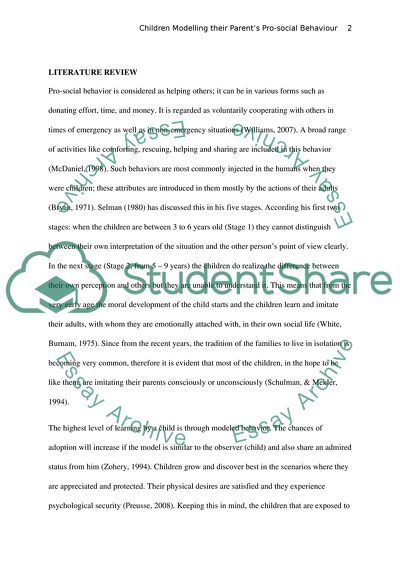CHILDREN MODELING THEIR PARENTS' PROSOCIAL BEHAVIOR Research Paper. Retrieved from https://studentshare.org/miscellaneous/1565658-children-modeling-their-parents-prosocial-behavior
CHILDREN MODELING THEIR PARENTS' PROSOCIAL BEHAVIOR Research Paper. https://studentshare.org/miscellaneous/1565658-children-modeling-their-parents-prosocial-behavior.


